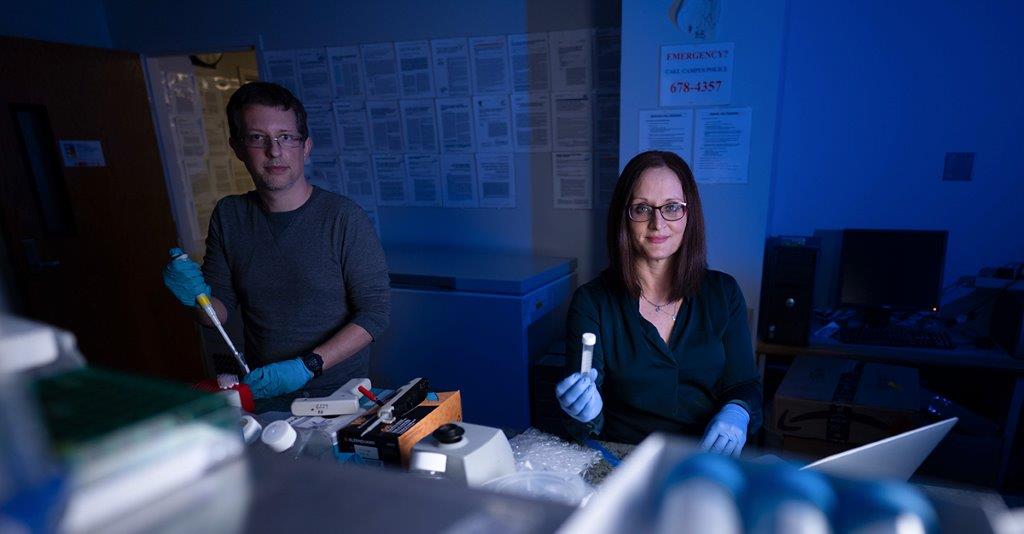Division of Research & Innovation
Identifying Risks and Developing Treatments
Defining biological mechanisms underlying cancer risk, so that effective personalized treatments can be developed.
People with obesity (defined as higher amounts of fat tissue) are at increased risk for a number of chronic diseases, including at least 13 types of cancer. However, the way in which obesity increases cancer risk is not very well understood. In an individual with obesity, a variety of biological changes occur, including increased chronic inflammation and a shift in the types of bacteria inhabiting the gut (the “microbiome”).
The College of Health Sciences (CHS) at the University of Memphis is currently participating in a large-scale project which is meant to discover links between obesity, gut microbes, inflammation, and breast cancer risk in women. The aim of the CHS portion of the project is to collect several biological samples from women of varied age, obesity status, and race. These samples will be used to determine how potential risk factors for breast cancer differ across these categories. CHS investigators will also more closely examine potential risk factors in a small cohort of bariatric surgery patients, looking both prior to and after surgery to determine how weight loss might change cancer risk.
These projects are led at the University of Memphis by Dr. Marie van der Merwe, associate professor in CHS, and Dr. Brandt Pence, associate professor and Director of Research in CHS. These projects constitute a portion of a larger, the WEight Loss and Cancer Outcomes in the Mid-South (WELCOM) study. WELCOM is directed by Dr. Liza Makowski, professor at the University of Tennessee Health Science Center, and Dr. Joseph Pierre, assistant professor at the University of Wisconsin-Madison. Additional WELCOM investigators are at Vanderbilt University Medical Center and the Wake Forest University School of Medicine.
The overall objective of the project is to define biological mechanisms underlying cancer risk, so that effective personalized treatments can be developed to manage risk and improve cancer patient outcomes. WELCOM is funded by the National Cancer Institute, a division of the National Institutes of Health, and is part of the umbrella Metabolic Dysregulation and Cancer Risk Program. The University of Memphis activities total approximately $1.2 million of the overall $5.2 million WELCOM project and run from September 2022 to August 2027.
For more information on these projects, contact van der Merwe at mvndrmrw@memphis.edu, or Pence at bdpence@memphis.edu.



